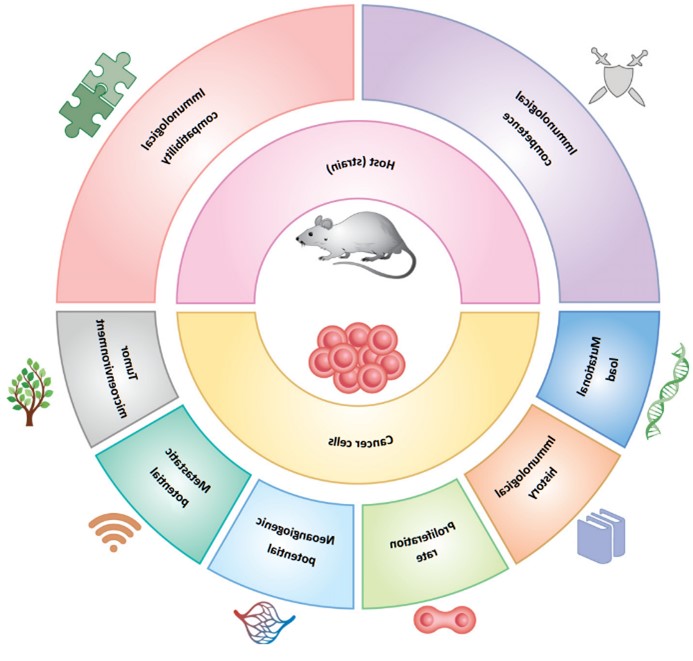DCs-Involved Immuno-Oncology Models for In Vivo Testing
Developing DCs Involved Immuno-Oncology Models is Significant for Cancer Therapy
As a core player in the immune system, dendritic cells (DCs) serve as an essential intermediary across the innate and adaptive immune systems and can be discovered in virtually every tissue of the body. They can be divided into three main types: conventional DCs (cDCs), plasmacytoid DCs (pDCs), and monocyte-derived DCs (moDCs). Functionally, DCs promote the anti-tumor immune responses by lineaging with T cells. Therefore, developing models co-inoculated with DCs, T cells, and cancer cells is of great significance for drug development in cancer therapy.
 Fig. 1 Characteristics of mouse models relating to tumor immunology and immunotherapy.1
Fig. 1 Characteristics of mouse models relating to tumor immunology and immunotherapy.1
Our DCs Involved Immuno-Oncology Models for In Vivo Testing
To assess the antitumor efficacy in animal models, Creative Biolabs successfully developed DCs-involved immuno-oncology models for in vivo testing. We take advantage of the co-inoculation technology to develop the DCs-involved immuno-oncology models co-inoculated with CD3+ T cells, induced DCs, and cancer cells. We not only provide ready-to-use DCs-involved immune-oncology models but also deliver solutions to develop the desirable immuno-oncology models for customers to aid in your projects. Furthermore, we also provide several humanized models for in vivo preclinical evaluation of anti-cancer drugs and immunotherapies. At Creative Biolabs, we will try our best to meet every customer's needs and ensure that your project is completed smoothly.
Here we provide two well-developed DCs-involved immune-oncology models for global customers to design for your projects:
-
A DCs-involved immune-oncology NCG mouse co-inoculated with Raji cells, CD3+ T cells, and monocyte-induced DCs. CD3+ T cells are isolated from activated human PBMC and DCs are induced by monocytes isolated from PBMC. Human PBMC was co-cultured with Raji human Burkitt's lymphoma.
-
A DCs-involved immune-oncology NCG mouse co-inoculated with A375 cells, CD3+ T cells, and monocyte-induced DCs. CD3+ T cells are isolated from activated human PBMC and DCs are induced by monocytes isolated from PBMC. Human PBMC was co-cultured with A375 human melanoma cancer cells.
In addition, we offer a full-around of services to help every customer develop the appropriate DCs-involved immune-oncology models:
-
Designing of a xenotransplantation study;
-
Picking a suitable cancer model or cell line;
-
Selecting an appropriate host animal;
-
Screening for effective xenotransplantation methods;
-
Observation and analysis of experiment subjects;
-
Identifying of DCs involved immune-oncology models.
Furthermore, we also deliver several humanized mouse models for your convenience:

Benefits for You
-
More accurate evaluation of anti-cancer drugs and immunotherapies;
-
Extended duration of effectiveness;
-
Highly sensitive;
-
One-stop DCs involved immuno-oncology model development services.
If you want to know more details about our DCs-involved immuno-oncology model for in vivo testing, please don't hesitate to contact us and make an inquiry.
Reference
-
Buqué, Aitziber, and Lorenzo Galluzzi. "Modeling tumor immunology and immunotherapy in mice." Trends in Cancer 4.9 (2018): 599-601.
For Research Use Only | Not For Clinical Use


 Fig. 1 Characteristics of mouse models relating to tumor immunology and immunotherapy.1
Fig. 1 Characteristics of mouse models relating to tumor immunology and immunotherapy.1


 Download our brochure
Download our brochure